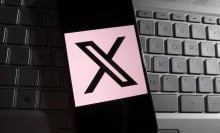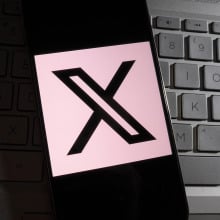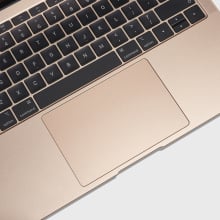Watch out, Elon Musk: The European Union is coming for your blue check brigade.
"Back in the day, blue checks used to mean trustworthy sources of information," EU commissioner Thierry Breton tweeted Friday. "Now with X, our preliminary view is that they deceive users."
Breton added that this deception infringes the Digital Services Act (DSA), the EU's powerful 2022 law that governs content moderation on social media. Musk's company would have the right to defend itself, but the EU will impose "fines" and force "significant changes" if its preliminary findings are confirmed.
Tweet may have been deleted
Prior to Musk's purchase of Twitter, blue checks were indeed added to accounts as a mark of expertise in various fields, or to accounts that ran a risk of being impersonated. Musk replaced that system by simply giving blue checks to any account that paid the company an $8 (or more) monthly fee, calling it "power to the people." Paid accounts would be prioritized in replies.
Result: months of absolute confusion as paid accounts trolled corporate accounts and impersonated celebrities (including Musk himself).
Musk soon added the ability to hide your bluecheck — hardly a vote of confidence in the system — and started personally paying for bluechecks on major accounts (including Mashable's Matt Binder) that didn't want the mark anymore.
For many Twitter users, the bluecheck has become a mark of derision, with major accounts such as @dril launching a campaign earlier this year to "block the blue."
Tumblr, meanwhile, parodied Musk's change with its "entirely pointless" system that gave buyers "important blue internet marks" for the low, low price of $7.99 a month.
This isn't the first time Thierry Breton and Musk have butted heads over the DSA. The EU is already investigating whether X is in breach of the act for failing to counter illegal content (such as its growing plethora of porn bots), disinformation (which is exploding in wartime), and "deceptive design."
Musk fired back by reportedly threatening to remove the service from Europe altogether, but has so far failed to do so. Europe accounts for nearly 10% of the company's user base.
Predictably, paid-account blue checks (which tend to support Musk) swarmed Breton's replies. One made reference to guillotines; others suggested freedom of expression would be infringed by any attack on the blue checks.
Much lower down, the non-paid X replies were more sympathetic. "The fines should be large enough so that Space Karen stops playing funny games," said one. As of this year, the EU commission can issue fines equal to 6% of a company's worldwide turnover, though no such sanctions have yet been collected.















